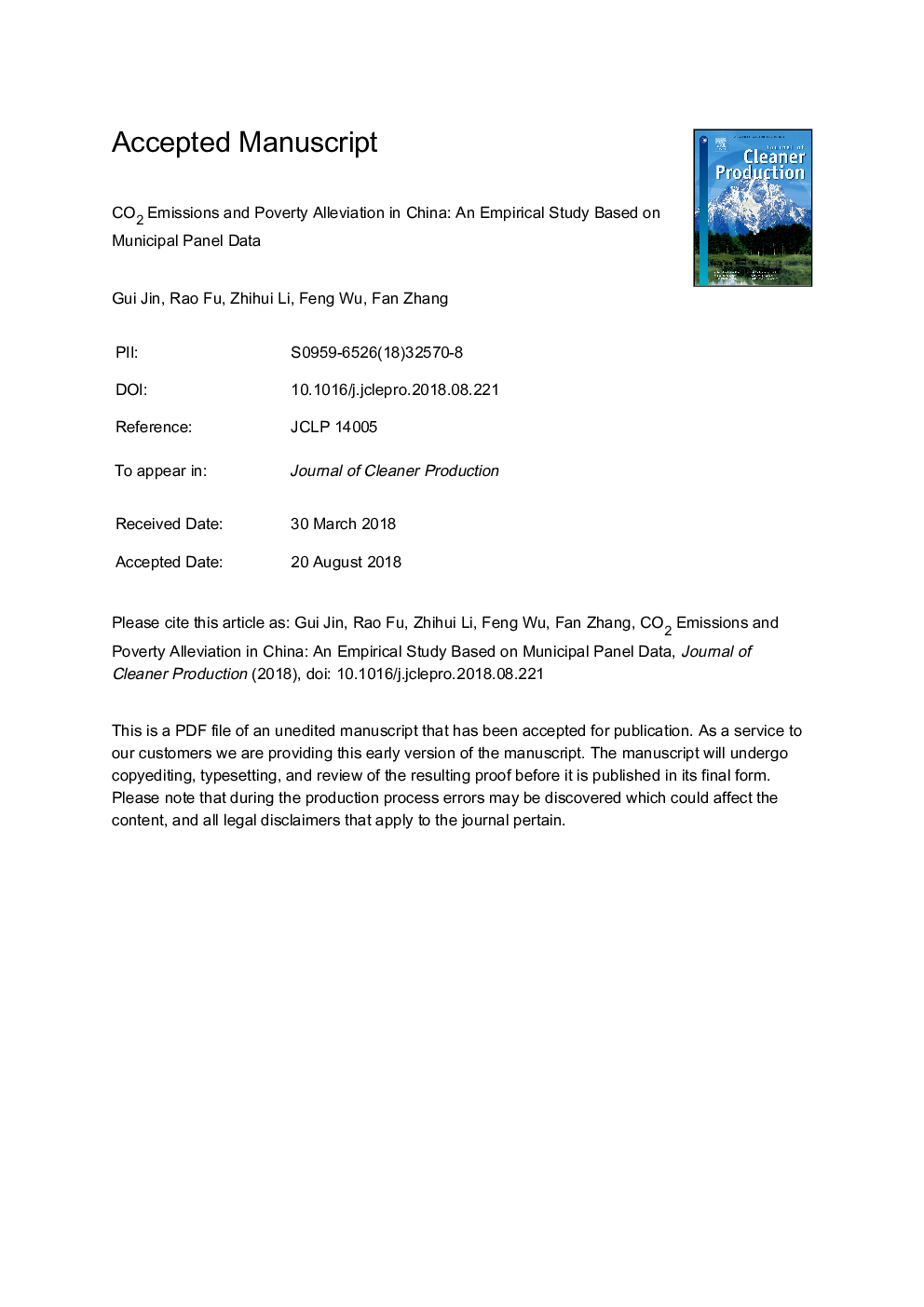| Article ID | Journal | Published Year | Pages | File Type |
|---|---|---|---|---|
| 8948876 | Journal of Cleaner Production | 2018 | 15 Pages |
Abstract
Industrial transition and climate change regulation to reduce CO2 emissions will affect employment and further influence social poverty. In this study, we measured CO2 emissions and the poverty-alleviation index based on socio-economic and energy consumption statistic data from 286 municipal cities in China for 2007-2014; analyzed relationships between CO2 emissions, employment rate, and poverty-alleviation index using simultaneous equations; and interpreted the mechanism by which CO2 emissions influence social poverty at the municipal level. The results indicate that average CO2 emissions from China increased by 32.9%, with a rapid initial rise and then steady growth from 2007 to 2014, while the average poverty-alleviation index increased by 25.19% during the same period. CO2 emissions had a significant positive relationship with employment rate in all industries. In addition, employment rate was negatively correlated with poverty-alleviation in primary industry and positively correlated with poverty-alleviation in non-agricultural industry. Studying the mechanisms for CO2 emission impacts on poverty-alleviation can provide important references for adapting to global climate change, promoting sustainable development, and safeguarding the legitimate development rights of all countries, especially developing countries.
Related Topics
Physical Sciences and Engineering
Energy
Renewable Energy, Sustainability and the Environment
Authors
Gui Jin, Rao Fu, Zhihui Li, Feng Wu, Fan Zhang,
